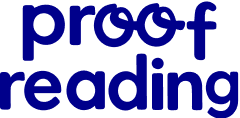Understanding Plagiarism Checkers
In the digital age, maintaining originality in your writing is crucial. A plagiarism checker is a tool designed to identify instances of copied content, ensuring that your work is original and free of any unintentional plagiarism. Whether you are a student, a business professional, or an academic researcher, utilizing a plagiarism checker can significantly enhance the quality and integrity of your documents.
Why Use a Plagiarism Checker?
Plagiarism checkers offer numerous benefits, which can be vital for anyone involved in writing:
- Protecting Your Reputation: Original work reflects your credibility. Using a plagiarism checker helps you avoid the risks associated with plagiarism accusations.
- Enhancing Academic Integrity: Students and researchers can maintain academic honesty by ensuring their work is original.
- Aiding in Professional Writing: Business documents should also be original. A plagiarism checker can help ensure your proposals and reports are unique.
How Plagiarism Checkers Work
Plagiarism checkers work by scanning your text and comparing it against a vast database of existing content, including online articles, books, and academic papers. Here’s how they typically function:
- Text Analysis: The tool analyzes the text for similarities with other published works.
- Database Comparison: It compares the analyzed text against a large database of content.
- Report Generation: After the analysis, the tool generates a report highlighting any instances of potential plagiarism.
Practical Tips for Using a Plagiarism Checker
To make the most out of a plagiarism checker, consider the following tips:
- Run Initial Checks: Before submitting any document, run it through a plagiarism checker to catch any unintentional similarities.
- Review the Report Thoroughly: Take the time to understand the report and address any flagged sections appropriately.
- Use Multiple Tools: Different checkers may yield different results. Using more than one tool can help ensure thoroughness.
- Understand Citation Styles: Familiarize yourself with proper citation methods to avoid plagiarism.
Common Misconceptions About Plagiarism
There are several misconceptions surrounding plagiarism that can lead to confusion:
- Only Students Plagiarize: Plagiarism can occur in any professional writing context, not just in academia.
- Paraphrasing Eliminates Plagiarism: Even when paraphrasing, proper citation is necessary to give credit to original authors.
- Plagiarism Checkers Are Foolproof: No tool is perfect. Always use your judgment in conjunction with these tools.
When to Seek Professional Editing Services
While plagiarism checkers are invaluable, they are not a substitute for professional editing and proofreading. Consider reaching out to an editing service like PaperCheck when:
- You need a thorough review of your writing style and structure.
- Your document requires formatting according to specific guidelines.
- You want to ensure that your content is engaging and error-free.
Get Started with PaperCheck
At PaperCheck, we understand the importance of originality and quality in your writing. Our expert editors are here to help you polish your documents and make them shine. Plus, enjoy a 15% discount on your first document when you choose our editing services!
Don't leave your writing to chance. Ensure your work is original and professionally presented. Visit PaperCheck today!
Conclusion
Using a plagiarism checker is a vital step in ensuring the integrity and originality of your writing. By understanding how these tools work and incorporating them into your writing process, you can enhance your credibility and produce high-quality documents. Remember, for a thorough review and professional touch, PaperCheck is just a click away!
